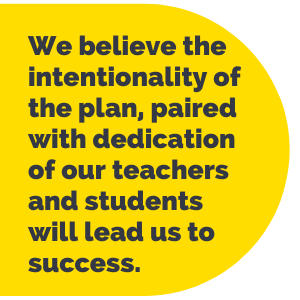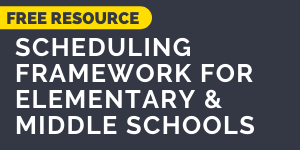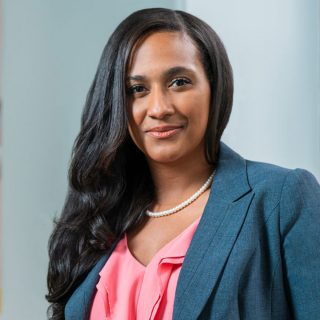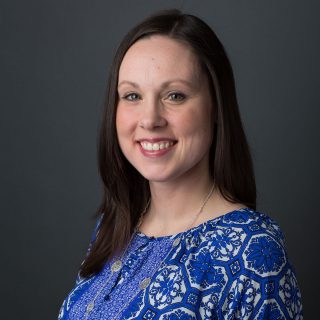El año escolar 2021-2022 comienza en dos meses y no podríamos estar más emocionados de dar la bienvenida a nuestros estudiantes a un nuevo año escolar lleno de nuevas oportunidades. La realidad de la pérdida de aprendizaje relacionada con la COVID nos obliga a fijar un objetivo audaz y necesario: invertir 100% de pérdida de aprendizaje relacionada con la COVID para junio de 2022. Para lograr este objetivo, hemos creado un modelo de instrucción K-12 que creemos firmemente que satisfará las necesidades académicas y de aprendizaje de nuestros alumnos.

Bienestar del personal y los estudiantes
Sabemos que el bienestar del personal y de los alumnos adquiere un significado aún mayor después de la pandemia y de la continua búsqueda de la justicia racial que recibió una mayor atención nacional el año pasado. La diversidad, la equidad y la inclusión (DEI) y el aprendizaje socioemocional (SEL) son motores clave del bienestar y se entretejerán en todos los aspectos del modelo de enseñanza Uncommon.
- Estructura y experiencia del alumno en ELA: En un esfuerzo por tener en cuenta no sólo el contenido de nuestro plan de estudios de ELA, sino también la estructura y la experiencia de los alumnos, reduciremos nuestra lista de novelas para disponer de más tiempo con las novelas restantes, añadiremos lecciones de esquemas temáticos multimodales y volveremos a hacer hincapié en las preguntas esenciales para maximizar la voz y el análisis de los alumnos.
- Tareas de rendimiento STEM: Los cursos de matemáticas y ciencias de secundaria seguirán desarrollando las tareas de rendimiento de las unidades, proporcionando a los estudiantes oportunidades sólidas para reforzar y profundizar en las prácticas matemáticas y científicas clave, esenciales para convertirse en ciudadanos informados en STEM.
- Selección ampliada de cursos de secundaria: Nuestro programa de secundaria ampliará la selección de cursos, lanzando planes de estudios alineados para Historia Afroamericana y Estudios Latinoamericanos y desarrollando un curso alineado de español para hablantes de patrimonio.
- Preparación para la escuela secundaria: Los estudiantes de 7º y 8º grado de Uncommon participarán en un programa de preparación para la escuela secundaria los viernes que se centra en una amplia gama de temas, incluyendo la gestión del tiempo y las tareas, la fijación de objetivos, el trabajo en equipo, la educación financiera y la voz y la defensa de los estudiantes.
- Club de lectura independiente de primaria: Para que los alumnos se impliquen aún más en su lectura nocturna, todos los viernes por la mañana se celebrará una reunión de 30 minutos del club de lectura, en la que los alumnos que hayan leído el mismo texto durante toda la semana se reunirán para hablar de su lectura con un pequeño grupo de compañeros.
Dar prioridad a la enseñanza de la lectura en K-6
La capacidad de un alumno para leer y comprender sustenta su capacidad para acceder y sobresalir en todas las demás áreas de contenido. Como se indica en nuestro Entrada en el blog del Programa de Éxito de VeranoNuestros datos nos dicen que entre 25% y 42% de nuestros estudiantes de K-4 están muy por debajo del punto de referencia (WBB), lo que significa que es poco probable que alcancen los objetivos de lectura subsiguientes sin recibir apoyo adicional de instrucción específica. Nuestros datos preliminares de lectura de 5º grado muestran tendencias similares. Como resultado, estamos priorizando tanto la instrucción de lectura a nivel de grado como la instrucción de lectura a nivel de estudiante.
- Enseñanza de la lectura a nivel de grado: Comprensión lectora, lectura detallada, vocabulario, redacción y estudio de novelas, así como Historia y Ciencias.
- Enseñanza del nivel de lectura de los alumnos: Lectura guiada basada en agrupaciones dinámicas determinadas por los datos de STEP o mCLASS.
Enseñanza en grupos reducidos centrada en acelerar el aprendizaje de los alumnos
Cada estudiante volverá a nosotros en el próximo año escolar en una variedad de lugares-algunos por debajo del nivel de grado, algunos en el nivel de grado, y algunos por encima del nivel de grado. Hemos integrado estratégicamente la instrucción en grupos pequeños en nuestros modelos de instrucción K-4 y 5-8 con el fin de cumplir con cada estudiante donde están en su aprendizaje al tiempo que garantiza la participación con el contenido de nivel de grado.
- Alfabetización en la escuela primaria: Mantener 2 (3º y 4º grado) o 3 (Kindergarten a 2º grado) bloques de alfabetización para permitir agrupaciones dinámicas y homogéneas de lectores.
- Matemáticas de Secundaria: Un bloque de instrucción de 20-30 minutos en grupos pequeños que se dirige a la recuperación "justo a tiempo" para preparar a los estudiantes para el aprendizaje del nivel de grado, la práctica adicional para construir el dominio, o las oportunidades de extensión para ir más allá de los aprendizajes actuales del nivel de grado.

Si te interesa saber más sobre cómo vamos a estructurar nuestro día, te invitamos a que compartas con nosotros nuestro plan. marco de programación contigo.
Evaluación simplificada
La evaluación y la respuesta a los datos se racionalizarán para recopilar datos con regularidad y volver a enseñar de forma eficaz al tiempo que se maximiza el tiempo de instrucción.
- Una evaluación a la vez para K-8 Matemáticas y K-8 ELA: Para evitar un exceso de datos superpuestos, se está dando prioridad a una única evaluación por ventana de evaluación para Matemáticas y ELA, de modo que los líderes y los profesores tengan un enfoque singular.
- Seguimiento del progreso escolar: Se facultará a las escuelas para que tomen decisiones sobre cómo y cuándo supervisar el progreso para garantizar un crecimiento adecuado entre las evaluaciones apoyadas por la red.
- Jornadas integradas de respuesta a los datos en el ámbito y las secuencias: Los días de respuesta a los datos (días sin nueva introducción de contenidos) se programarán de forma proactiva para garantizar que los profesores puedan responder a los datos sin tener que recortar o comprimir los contenidos ya programados.
Tecnología integrada
Ahora que Uncommon ha cambiado a un modelo de Chromebook de 1 a 1, continuaremos aprovechando esta tecnología para mejorar y elevar nuestro plan de estudios mientras creamos ciudadanos digitales informados.
- Habilidades tecnológicas: Utilizando los Estándares Estatales Básicos Comunes y los estándares tecnológicos estatales, estamos trabajando para planificar hacia atrás todo el camino hasta el jardín de infantes para asegurar que los estudiantes tengan las habilidades tecnológicas necesarias para la preparación universitaria y profesional. Por ejemplo, vamos a aumentar nuestras lecciones de tecnología durante la instrucción de escritura K-4 que apoyará a los estudiantes en la publicación de su trabajo.
- Zearn: Los alumnos de 5º y 6º utilizarán Zearn cuando no trabajen directamente con el profesor durante el bloque de diferenciación de matemáticas en grupos pequeños. Zearn se puede utilizar para la práctica adicional con el contenido enseñado previamente o como un estiramiento para los estudiantes listos para participar de forma independiente con nuevos contenidos.
- Amplificar la lectura: Los estudiantes de Kindergarten a 6º grado participarán en Amplify Reading para centrarse en habilidades específicas que necesitan apoyo adicional como complemento a sus bloques de alfabetización.
- Academia Winward: Durante los bloques programados de preparación para el SAT, los alumnos de 11º y 12º de secundaria utilizarán Winward Academy, un plan de estudios y una plataforma de aprendizaje para el SAT que se pueden personalizar y adaptar para responder a las necesidades de los alumnos y de la clase.
Sabemos que se trata de objetivos e iniciativas ambiciosos, pero creemos que la intencionalidad del plan, unida a la dedicación de nuestros profesores y alumnos, nos llevará al éxito. Esperamos poder informarles de nuestros progresos -éxitos, fracasos y lecciones aprendidas- a lo largo del próximo curso escolar, así como compartir los recursos que se vayan creando para estas iniciativas.
Si le interesa profundizar en los pilares mencionados o formular preguntas que le ayuden en su propia planificación para el curso escolar 2021-2022, le animamos a que se suscriba a nuestro blog. Se compartirá una invitación sólo para suscriptores para que un número limitado de asistentes se una a una oportunidad virtual de continuar esta conversación. Esperamos aprender de usted también.
Haga clic a continuación para consultar los PDF de todos los recursos mencionados:





